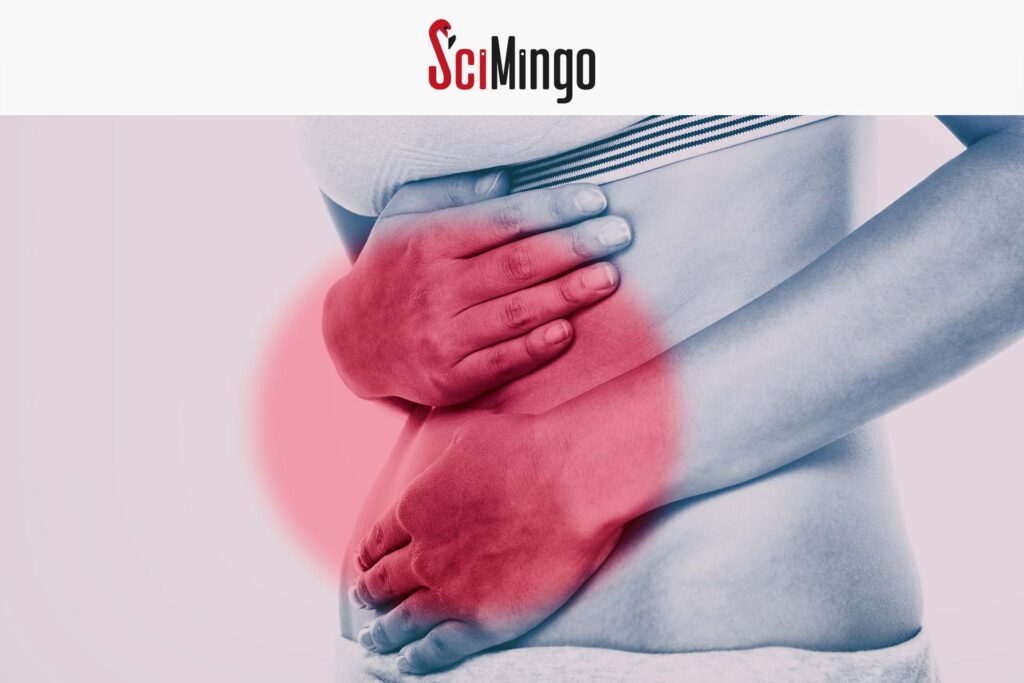As a treatment, the gluten-free diet avoids the problem instead of solving it: gluten damages the gut of people with celiac causing nutrient malabsorption – which can be solved by cutting it from the diet. However, gluten-free products also contain fewer nutrients. Avoiding gluten is not a long-term solution, and still a minority of celiac sufferers experience gut damage while adhering to this diet. Reason enough for scientists to explore alternative options.
Digestive enzymes from barley/bacteria
Gluten peptides are generally highly resistant to enzymatic degradation in the intestines, resulting in intermediates that – in celiac patients – drive an immune response. Even low levels of gluten exposure can induce ongoing inflammation in the gut, damaging the mucosa and interfering with nutrient uptake. Additional digestive enzymes could degrade gluten to decrease the availability of the intermediates, and hence, decrease inflammation and gut damage.
Scientists with the IMGX003 CeliacShield Study Group tested a combination of two non-human digestive enzymes in celiac patients. These digestive enzymes, derived from barley and bacteria, and both of which can be produced in micro-organisms, were tested in a clinical study. The participants of the study followed a strict gluten-free diet and were challenged daily with gluten traces for six weeks. With each meal, participants orally consumed either a placebo or the enzyme mix, which digests gluten in the stomach. The CeliacShield team concluded that, ”The enzyme treatment rescued mucosal damage and gluten-induced symptoms, and there was no indication of safety issues.” However, due to the limited duration of the trial, long-term effects could not be assessed.
Inhibiting an enzyme excess
Researchers with the international CEC-3 Trial Group conducted a study which tested the effect of inhibiting a “normal” digestive enzyme, transglutaminase, in celiac patients. Everyone has transglutaminase enzymes, however, their elevated presence in celiac patients leads to an increase in auto-immune antibodies and even more damage. Hence, an inhibitor to block the effects of the transglutaminase enzyme could ease celiac symptoms.
Similar to the CeliacShield study, participants of the enzyme inhibition study followed a six-week gluten-free diet with controlled, small amounts of gluten added daily. With each meal, participants took an oral placebo or one of various doses of the inhibitor. The inhibitor treatment attenuated mucosal damage in patients independent of the dose. Adverse effects accompanied the inhibitor treatment in 78% of the participants: headache, nausea, diarrhea, vomiting, and abdominal pain. The amount of gluten given to the participants as a challenge in this trial was 1500 times that of the enzyme trial, which could explain the occurrence of adverse effects.
Vaccination changes gluten perception
A Helsinki trial conducted by the TAK-101 Study Group investigated potential vaccines based on nanoparticles which encapsulate a gluten protein. In celiac patients, immune cells process and present “harmless” gluten proteins as dangerous to T cells, which are responsible for gut damage in celiac patients upon activation. Surprisingly, encapsulating the gluten protein in these nanoparticles changes the way the system perceives the protein: it is now tolerated, no longer perceived as dangerous.
Over a period of five months, the researchers intravenously injected the participants twice with either a placebo or the nanoparticles – tailored to the body weight – and challenged them with gluten traces. The participants tolerated the particles and immune activation by the gluten was prevented. The researchers observed adverse effects such as abdominal pain, diarrhea, vomiting, nausea, and flatulence in 75% of the participants, but interestingly only those who received a single opposed to double injection. Changing the immune response to gluten proteins offers a long-term solution that tackles the cause of the problems, instead of only addressing the consequences, not only for celiac disease, but for other autoimmune diseases as well.
In a couple of years…
Although a gluten-free diet is currently the only way to effectively manage celiac disease, it can’t remain the standard care. The three treatments described here are currently in phase 2 clinical trials, and have about a one in three chance to make it to phase 3 before being considered for approval by the US Food and Drug Administration. As clinical trials take around 10-15 years to complete, it’s possible that a treatment will be available for people with celiac in a couple of years.


